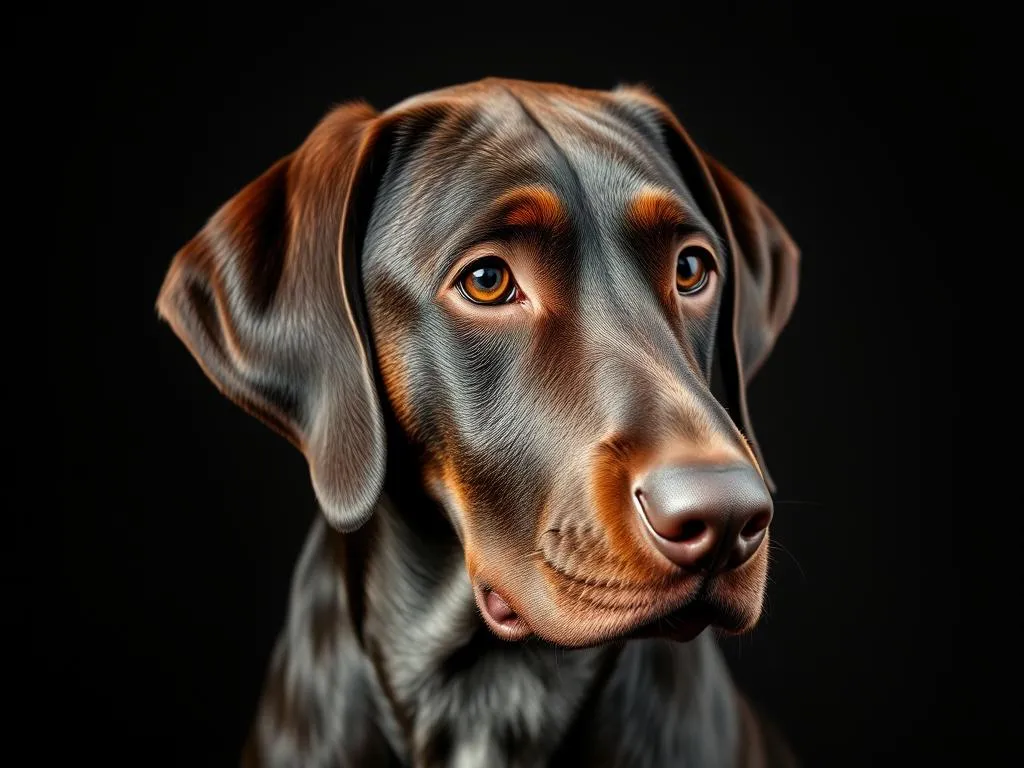
Introduction
Dogs have been companions to humans for thousands of years, serving as our friends, protectors, and even workers. With the vast array of dog breeds available today, each one carries unique characteristics that enrich our lives in different ways. Among these, mixed breeds, particularly designer dogs, have gained immense popularity among pet owners in recent years. One such mixed breed that has captured the hearts of many is the German Shorthaired Lab.
The German Shorthaired Lab is an exciting blend of two beloved breeds: the German Shorthaired Pointer and the Labrador Retriever. This combination brings together the best traits of both parent breeds, making it an appealing choice for many households. In this article, we will delve into the characteristics, care requirements, and overall suitability of the German Shorthaired Lab for potential owners.
Understanding Dog Breeds
Definition of Dog Breeds
A dog breed is a specific group of domesticated dogs with particular characteristics that distinguish them from other groups. These distinctions can be based on size, coat type, temperament, and behavior. Purebreds are dogs that are bred from a recognized lineage, while mixed breeds, like the German Shorthaired Lab, result from the breeding of two different purebred dogs.
Significance of Dog Breeds
Different breeds serve various roles in human society, from companionship to performing specific tasks such as hunting, herding, or assisting those with disabilities. Understanding the unique characteristics of each breed can significantly impact behavior, health, and training approaches. For instance, breeds like the German Shorthaired Lab are known for their intelligence and energy, which can influence how they interact with their environment and their families.
The German Shorthaired Lab
Breed Origins
The origins of the German Shorthaired Lab can be traced back to its parent breeds. The German Shorthaired Pointer, developed in Germany in the 19th century, was bred for hunting and versatility. It is known for its keen sense of smell, speed, and agility. The Labrador Retriever, originally from Newfoundland, Canada, also has a rich history as a working dog, primarily used for retrieving game from water. The combination of these two breeds resulted in the German Shorthaired Lab, a mixed breed that inherits the best traits of both parent breeds.
Physical Characteristics
The German Shorthaired Lab is a medium to large-sized dog, typically weighing between 55 to 75 pounds and standing about 21 to 25 inches tall at the shoulder. They are well-proportioned and athletic in appearance.
- Coat Type and Color Variations: Their coat is usually short and dense, making it suitable for various weather conditions. Color variations can include combinations of chocolate, liver, black, and tan, often with distinctive markings.
- Distinctive Features: This breed is known for its expressive eyes and floppy ears, which contribute to its friendly appearance. Their strong build and muscular frame reflect their energetic nature.
Temperament and Behavior
The German Shorthaired Lab is typically known for its friendly and outgoing personality. They are intelligent, eager to please, and highly trainable, which makes them suitable for families and active individuals alike. Here are some notable traits:
- Family Interaction: This breed is excellent with children and often forms strong bonds with family members. Their playful nature makes them a great addition to any household.
- Compatibility with Other Pets: They usually get along well with other pets, especially if socialized from an early age. However, their high energy levels might overwhelm smaller animals, so supervision is essential.
Health and Care
Common Health Issues
Like all breeds, the German Shorthaired Lab can be susceptible to certain genetic health issues inherited from their parent breeds. Some common health concerns include:
- Hip Dysplasia: A condition where the hip joint doesn’t fit into the hip socket properly, leading to arthritis and pain.
- Obesity: Due to their love for food and treats, they can easily become overweight if not properly managed.
Regular veterinary check-ups and a healthy diet can help mitigate these risks.
Nutrition and Diet
Providing a well-balanced diet is crucial for the health and well-being of your German Shorthaired Lab. Here are some dietary guidelines:
- High-Quality Dog Food: Choose a high-quality dog food that meets their specific age, size, and activity level.
- Balanced Nutrition: Ensure their diet includes protein, carbohydrates, fats, vitamins, and minerals to sustain their energy levels and overall health.
Exercise Requirements
The German Shorthaired Lab is an energetic breed that requires regular exercise to maintain their physical and mental health.
- Daily Exercise Needs: Aim for at least 60 to 90 minutes of exercise each day, which can include walks, runs, and playtime.
- Impact of Exercise: Regular physical activity helps prevent behavioral issues and obesity, keeping your dog happy and healthy.
Grooming Needs
Grooming is relatively straightforward for the German Shorthaired Lab due to their short coat.
- Grooming Frequency: Regular brushing (once a week) can help minimize shedding and keep their coat shiny.
- Seasonal Shedding: Be prepared for increased shedding during seasonal changes, and consider using a de-shedding tool for more effective coat care.
Training and Socialization
Basic Training Techniques
Training your German Shorthaired Lab can be a rewarding experience, as they are eager to learn and please their owners.
- Effective Training Methods: Use positive reinforcement techniques, such as treats and praise, to encourage good behavior.
- Consistency is Key: Being consistent with commands and expectations will help your dog learn more effectively.
Socialization Guidelines
Early socialization is crucial for developing a well-rounded dog.
- Benefits of Early Socialization: Exposing your puppy to different people, environments, and other animals can help prevent behavioral problems later on.
- Recommended Activities: Take your dog to parks, dog-friendly events, or puppy classes to facilitate socialization.
Finding the Right German Shorthaired Lab
Adoption vs. Breeding
When considering adding a German Shorthaired Lab to your family, you may face the decision between adoption and buying from a breeder.
- Pros of Adoption: Adopting from a rescue organization can save lives and provide a loving home to a dog in need.
- Pros of Breeding: Purchasing from a reputable breeder may allow you to have more information about the dog’s lineage and health history.
What to Look For
When selecting a puppy or adult German Shorthaired Lab, consider the following traits:
- Health Clearances: Ensure that health clearances are provided for conditions like hip dysplasia and other breed-specific issues.
- Temperament: Observe the dog’s behavior to assess compatibility with your lifestyle and family dynamics.
Lifestyle Considerations
Ideal Living Conditions
The German Shorthaired Lab can adapt to various living situations, but certain environments may be more suitable.
- Best Living Environments: They thrive in homes with access to a yard where they can run and play, but they can also adapt to apartment living if given ample exercise.
- Importance of Space: Providing enough space for exercise and play is crucial for their overall well-being.
Family Compatibility
This breed is particularly well-suited for families, especially those with active lifestyles.
- Suitability for Families: Their friendly nature and energy levels make them excellent companions for children.
- Considerations for Active vs. Less Active Households: If your household is less active, ensure you can commit to providing sufficient exercise and mental stimulation to keep your dog happy.
Conclusion
In summary, the German Shorthaired Lab is a delightful mixed breed that combines the best attributes of the German Shorthaired Pointer and the Labrador Retriever. With their friendly disposition, intelligence, and energetic nature, they make wonderful companions for families and active individuals alike.
As with any pet ownership, responsible ownership is key. Consider your lifestyle, the time you can dedicate to training and exercise, and the commitment required before bringing a German Shorthaired Lab into your home. The joy and companionship they offer can be immensely rewarding, making them a fantastic addition to any family.
By understanding the characteristics, care needs, and lifestyle considerations associated with the German Shorthaired Lab, you’ll be well-equipped to make an informed decision about whether this breed is the right fit for you and your family.









